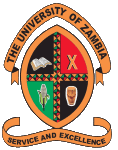
Confucius (551 – 479 B.C.) is the most influential and most revered person in Chinese history. A descendant of a noble family, he grew up in poor circumstances but became a self-educated man and one most learned for his time. In his early twenties he served as keeper of the granary and later as supervisor of flocks in his native state of Lu. He also began to teach and showed a keen interest in politics. A decade later he was in the neighboring state of Ch`i for several years and was consulted on government, but he returned home when opposition threatened his life.
At 51 he became a magistrate and then minister of justice, probably in the same year, perhaps having served as assistant minister of public works between the two appointments. As minister of justice he succeeded at a diplomatic meeting, in recovering the land taken by Ch`i. He also destroyed the walled cities of three powerful barons in order to restore power to the ruler of Chou. At 56, finding the ruler no longer interested in his ideas, he left Chou and spent almost 13 years travelling, with some of his pupils, through nine states. Unable to influence their rulers, he returned to Lu at 68 to continue teaching and perhaps to work on the documents and songs that eventually formed part of the Spring and Autumn Annals, the Book of Changes (I Ching), and four other classics, the Book of History, Book of Odes, Book of Rites and Book of Music.
He said he was only a transmitter and looked to ancient sage-kings as models, but he was the first in China to become a professional teacher, to teach people literature and principles of conduct instead of vocational statecraft, and to open the doors of education toall. He radically changed traditional concepts of Heaven, the superior man, and humanity (jen). He departed from the traditional ``ju (literati) of the weak`` emphasizing submission, taking no action, etc. and became a ``ju of the strong,`` emphasizing an active life, etc., thus starting a new class of intellectuals. He also inaugurated the tradition of wandering scholars.
Raising the growing humanistic tendency to a greater height than before, he talked about life instead of death and about man rather than spiritual beings. He declared that `` it is man that can make the Way great and not the Way that can make man great.`` For him the ideal is the harmony of the perfect individual and a well-ordered society based on the mutual moral obligations of the five human relations between ruler and minister, father and son, elder brother and younger brother, husband and wife, and one friend and another, with filial piety and brotherly respect as the two fundamental virtues. Government is to be conducted through the ruler`s moral examples, and religious ceremonies are to fulfill moral duties. Confucius sharply contrasted the superior man, whose standard is moral principle, with the inferior man whose standard is profit. In short, his whole doctrine can be summed up as ethical humanism. ( The Encyclopedia of Philosophy. Volume Two. Pg 189. New York, The Macmillan Company & The Free Press, 1967)

